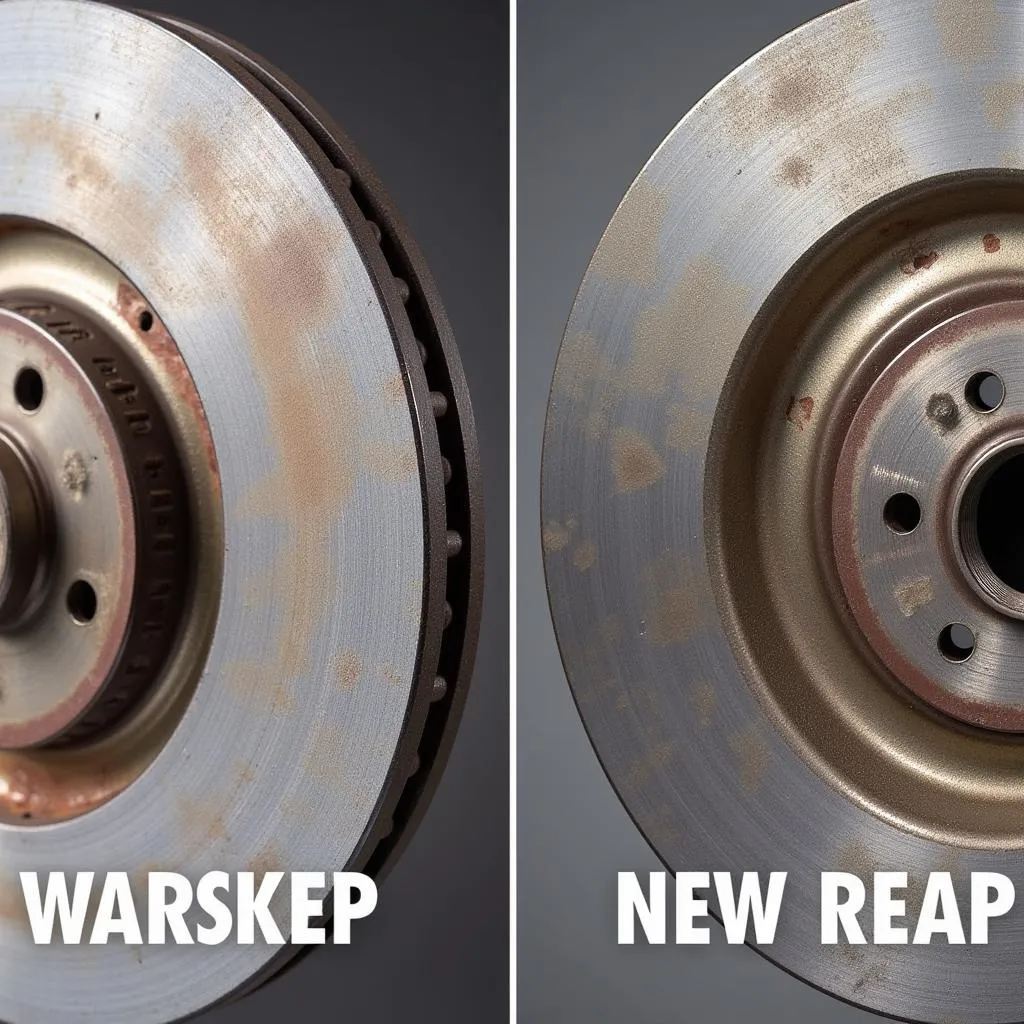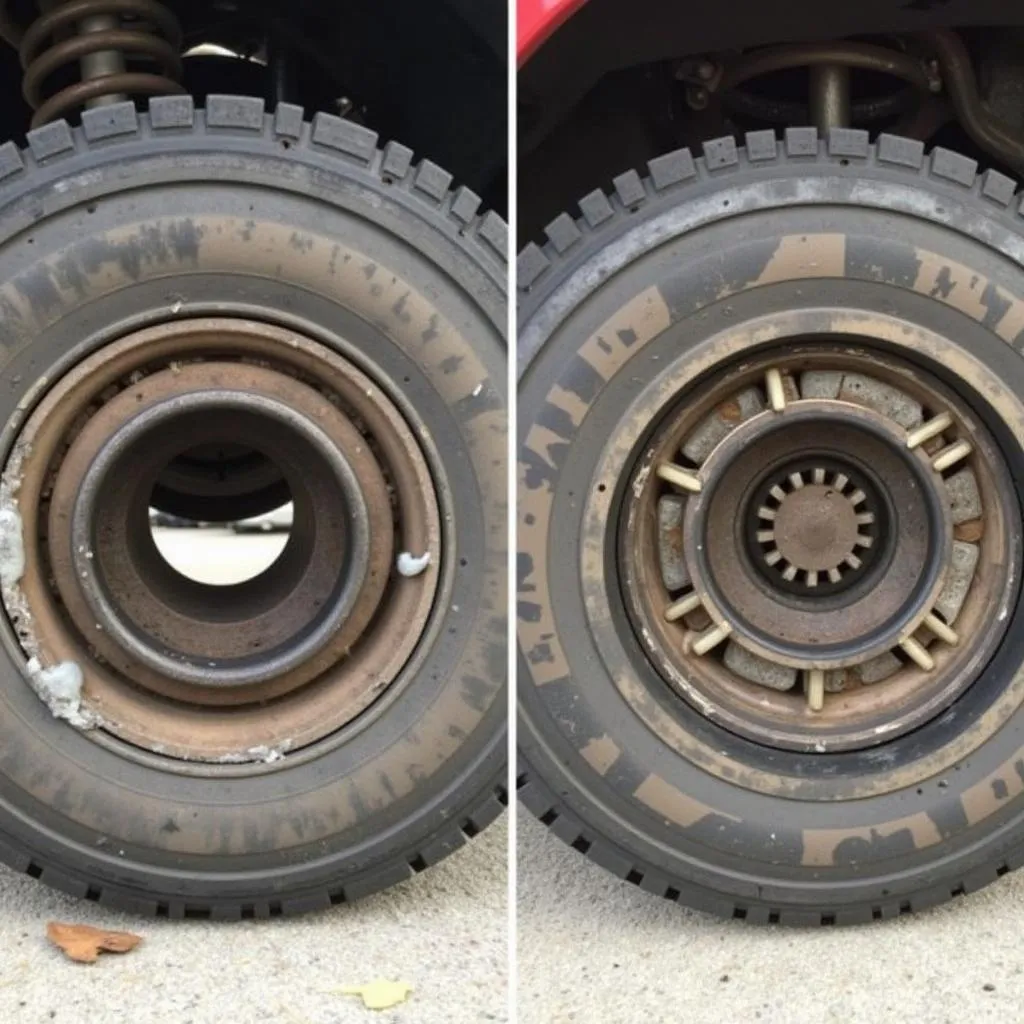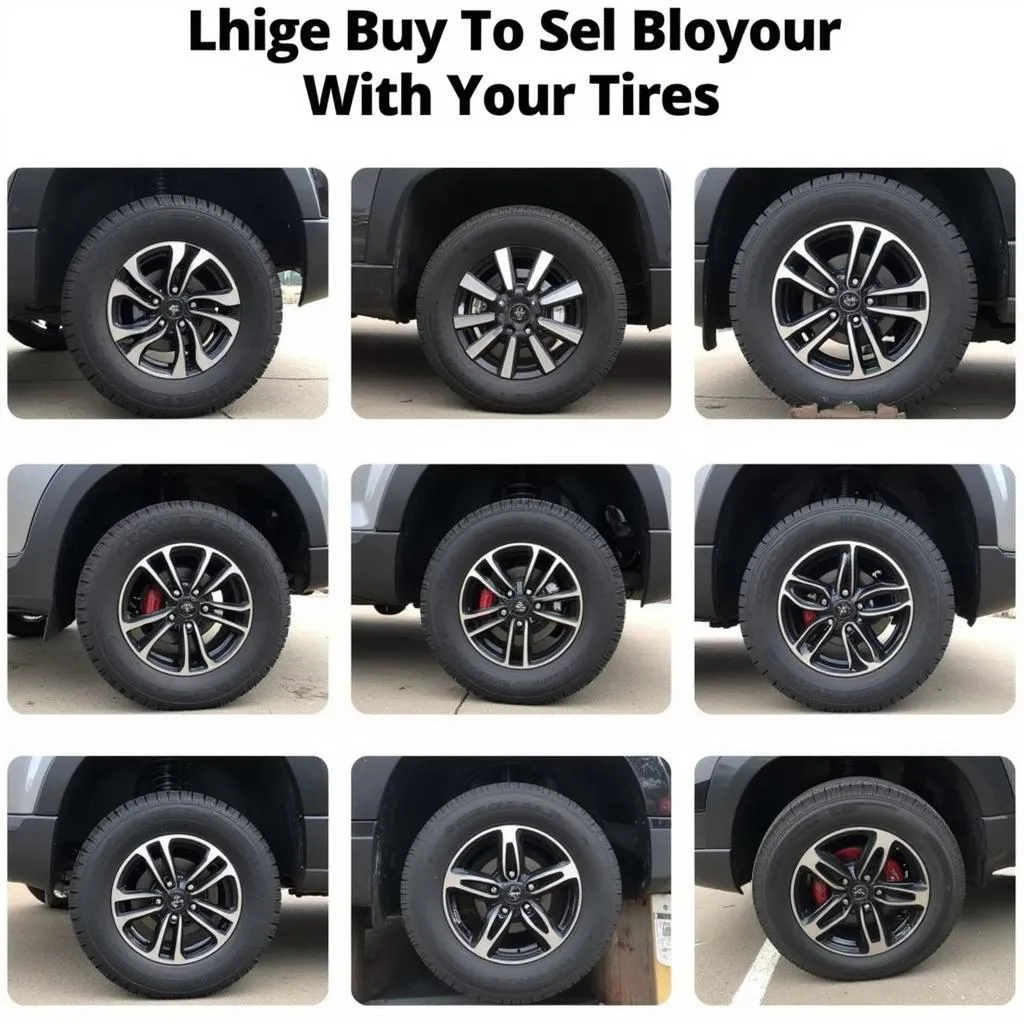Car Shakes When Coming to a Stop: Causes and Solutions
Experiencing a shudder or vibration as your car comes to a stop can be unnerving and potentially signal an underlying issue with your vehicle. This shaking is not only annoying but could point to problems with your brakes, suspension, or other critical components.
This article will delve into the common reasons why your Car Shakes When Coming To A Stop, helping you understand the potential causes and solutions.
Common Causes of Car Shaking When Braking
Several culprits could be the source of your car’s shaking, ranging from minor issues to more serious problems requiring professional attention. Here’s a breakdown of the most common causes:
1. Warped Brake Rotors
 Warped brake rotor
Warped brake rotor
One of the most frequent reasons your car shakes when braking, particularly at higher speeds, is warped brake rotors. The rotors are the large, flat discs that the brake pads clamp down on to stop the wheel’s rotation. Over time, rotors can become warped due to excessive heat caused by heavy braking. This warping results in an uneven surface, causing the brake pads to make inconsistent contact, leading to vibrations that you feel through the steering wheel and the car’s body.
2. Worn Brake Pads
Brake pads are designed to wear down over time. As they thin, their ability to grip the rotor evenly is compromised. This uneven contact can lead to vibrations, especially during braking. If you hear a squealing or grinding sound when applying the brakes, it’s a telltale sign that your brake pads might be worn and need replacement.
3. Problems with Wheel Bearings
 Worn wheel bearing next to a new one
Worn wheel bearing next to a new one
Wheel bearings are crucial components that allow the wheels to rotate smoothly. A worn or damaged wheel bearing can cause vibrations at various speeds, which might intensify when braking. Alongside shaking, a failing wheel bearing might also produce a humming or rumbling noise.
4. Suspension Issues
While not directly related to braking, problems with your car’s suspension system, like worn-out ball joints or tie rod ends, can exacerbate shaking when coming to a stop. A compromised suspension system can’t dampen vibrations effectively, making the shaking more pronounced during braking.
5. Tire Problems
 Different tire problems
Different tire problems
Unbalanced or unevenly worn tires can also contribute to vibrations, especially at higher speeds. These vibrations might become more noticeable during braking as the weight of the vehicle shifts forward. Ensure your tires are properly balanced and rotated regularly to prevent uneven wear.
Diagnosing the Problem
“Determining the exact cause of car shaking when braking often requires a professional inspection,” says John Miller, a certified mechanic with over 20 years of experience. “A mechanic can thoroughly inspect your vehicle’s braking system, suspension, and tires to pinpoint the source of the issue.”
Here are some steps a mechanic might take:
- Test drive: The mechanic will likely take your car for a test drive to experience the shaking firsthand and gather information about the conditions under which it occurs.
- Inspect the brake system: They’ll check the thickness of the brake pads and the condition of the rotors, looking for warping or uneven wear.
- Examine the suspension: They will inspect the various components of the suspension system, such as ball joints, tie rods, and control arms, to identify any signs of wear or damage.
- Check the tires: The mechanic will inspect the tires for signs of uneven wear, bulges, or other damage. They will also check the tire pressure and balance.
Solutions and Repairs
The solutions to address car shaking when coming to a stop depend on the underlying cause:
- Warped rotors: In some cases, warped rotors can be machined to create a smooth surface. However, if the warping is severe or the rotors are too thin, replacement is the safer option.
- Worn brake pads: Worn brake pads need to be replaced. It’s generally recommended to replace the rotors and pads simultaneously to ensure optimal braking performance and longevity.
- Faulty wheel bearings: Damaged wheel bearings will need to be replaced to ensure safe and smooth driving.
- Suspension problems: Worn suspension components will need to be replaced to restore proper vehicle handling and stability.
- Tire issues: Unbalanced tires can be balanced, while unevenly worn tires might require rotation or replacement depending on the severity of the wear.
Preventing Future Issues
Taking preventative measures can help minimize the risk of your car shaking when braking in the future:
- Avoid hard braking: While emergency situations might necessitate hard braking, consistently braking aggressively generates excessive heat, increasing the likelihood of warped rotors.
- Schedule regular brake inspections: Having your brakes inspected regularly, at least once a year or as recommended in your car’s owner’s manual, can help identify potential issues early on.
- Maintain proper tire pressure: Check your tire pressure regularly and inflate them to the recommended level. This helps ensure even tire wear and optimal vehicle handling.
- Rotate tires: Rotating your tires according to the manufacturer’s recommendations ensures they wear evenly, minimizing vibrations and extending their lifespan.
Conclusion
Addressing car shaking when coming to a stop is crucial for ensuring your safety and preventing further damage to your vehicle. By understanding the common causes, recognizing the signs, and taking prompt action, you can enjoy a smoother, safer driving experience. Remember, regular vehicle maintenance and timely repairs are key to keeping your car in top condition and preventing costly issues down the road.
If you’re experiencing any shaking or vibrations while braking, don’t hesitate to contact a qualified mechanic for a thorough inspection and diagnosis. Ignoring these signs could worsen the problem and lead to more extensive and expensive repairs in the future.
Frequently Asked Questions (FAQs)
1. Can driving with warped rotors damage my car?
Yes, driving with warped rotors can lead to several issues, including reduced braking performance, increased stopping distances, and accelerated wear on other brake components.
2. How often should I replace my brake pads?
The lifespan of brake pads varies greatly depending on driving habits, vehicle type, and brake pad material. However, it’s generally recommended to have them inspected at least once a year and replaced when they reach the minimum thickness specified by the manufacturer.
3. Can I resurface my brake rotors instead of replacing them?
Resurfacing rotors is a possible solution if the warping is minimal and the rotors meet the minimum thickness requirements. However, it’s essential to consult with a qualified mechanic to determine if resurfacing is a viable option for your situation.
4. Can low tire pressure cause my car to shake when braking?
Yes, low tire pressure can contribute to vibrations, especially at higher speeds, which might be more noticeable during braking. Ensure your tires are inflated to the recommended pressure.
5. How can I tell if my wheel bearing is bad?
A bad wheel bearing might produce a humming or rumbling noise, particularly at certain speeds. You might also feel vibrations in the steering wheel or the car’s body.
Still Have Questions?
Get in touch! Our team of car diagnostics experts are available 24/7 to assist you. Contact us via WhatsApp: +1(641)206-8880, Email: [email protected] or visit our workshop at 276 Reock St, City of Orange, NJ 07050, United States.
